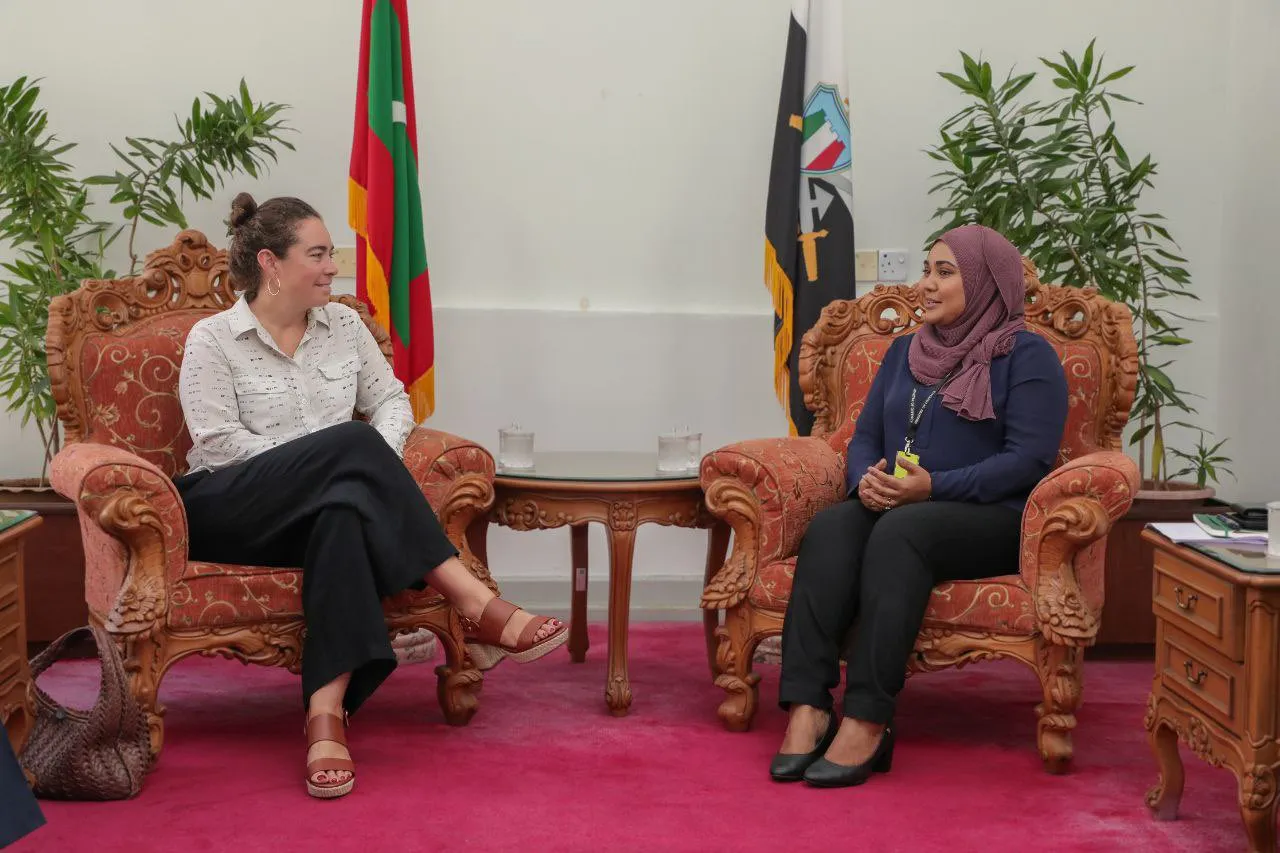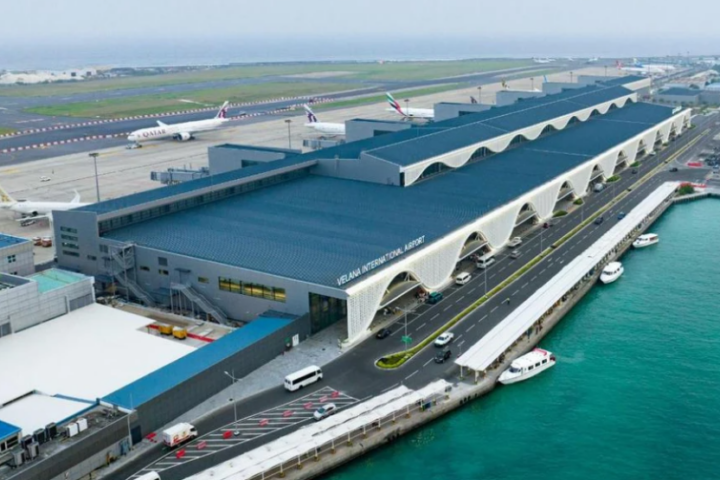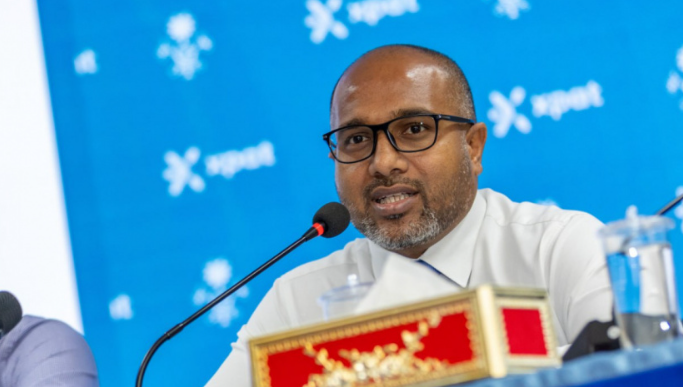Malé, Maldives — In a world where diplomatic engagements often fly under the radar, Caroline Vik’s recent trip to the Maldives didn’t make many headlines. As the Communications Director for the House Select Committee on the Strategic Competition Between the United States and the Chinese Communist Party, Vik’s visit, just a day after the sixth anniversary of the China-Maldives Friendship Bridge, was far from routine. It signaled a strategic move tied to the broader geopolitical chess game between the United States and China in the Indo-Pacific.
The timing of Vik’s visit matters. U.S. foreign policy is currently stretched thin—dealing with crises from Ukraine to Gaza—leaving little bandwidth to address rising tensions in the Indo-Pacific. A recent report from the Institute for the Study of War (ISW) highlights a concerning scenario: China might seize Taiwan’s offshore Kinmen Islands within six months, exploiting a distracted United States, an inexperienced Taiwanese administration, and its own aggressive posture.
The ISW report points out vulnerabilities in U.S. strategy. President Joe Biden’s lame-duck status following his decision not to run in the 2024 election adds to the uncertainty. Combined with the public’s lack of appetite for new military engagements, this could give Chinese President Xi Jinping the opportunity to push control over Taiwan’s periphery, particularly the Kinmen Islands.
Tensions have escalated since Lai Ching-te took office as Taiwan’s president in May. Taiwan’s Coast Guard has expelled over 800 Chinese boats from its waters this year, prompting warnings from Defense Minister Wellington Woo about China’s attempts to normalize its presence around Kinmen.
“In the United States, President Joe Biden is in his lame-duck period… the U.S. domestic political landscape is turbulent and divisive amid the ongoing election… and the U.S. populace has little appetite for more war,” the report stated.
While Vik was in the Maldives, her boss, Chairman John Moolenaar (R-MI), was on a diplomatic mission on the other side of the globe, visiting South Korea and Japan to focus on security partnerships in the face of China’s rising aggression. His discussions with officials in both countries centered on strengthening defense cooperation and unifying their stance against Beijing’s expanding influence. Moolenaar’s presence underscored the urgency of reinforcing U.S. alliances, especially as China’s ambitions threaten to reshape East Asia’s strategic landscape.
“China can escalate coast guard activities to initiate a quarantine around Kinmen that denies passage to Taiwanese government ships and economically squeezes the islands,” the report noted.
Vik’s role in Washington places her at the heart of these geopolitical issues. Her discussions in the Maldives, especially with Deputy Minister of Defence Mizna Ali, likely covered the broader strategic rivalry between the U.S. and China, beyond just economic and security interests. The Maldives’ strategic position in the Indian Ocean makes it a significant player in the region’s power dynamics.
China’s assertive moves in the South China Sea, clashes with the Philippines, and incursions into Japanese waters are not isolated incidents. They are part of a larger strategy that could see Beijing making bolder moves in Taiwan’s outlying islands, starting with Kinmen. The ISW report suggests that China could gradually escalate its presence, leading to a quarantine or blockade, pressuring Taiwan into a “demilitarized zone” deal without direct military confrontation.
For the Maldives, these developments are critical. As a small island nation, it is highly aware of the shifting geopolitical tides. China’s growing influence in the Indian Ocean, exemplified by the China-Maldives Friendship Bridge, shows Beijing’s soft power at work. But with the U.S. now positioning itself more explicitly as a counterbalance to China, the Maldives must carefully navigate its path to maintain sovereignty and strategic autonomy. The recent opening of a U.S. embassy in the Maldives further signals Washington’s commitment to strengthening its presence in the region.
Vik’s visit, though underreported, highlights the Maldives’ growing strategic significance. It also underscores the need for the United States to maintain a strong presence in the Indo-Pacific, not just through military strength but also through diplomatic engagement. As the ISW report cautions, the time to counter China’s non-military coercion is running out. Inaction could shift the balance of power in the Indo-Pacific, with far-reaching implications for global security.
In the months ahead, as the United States contends with domestic political and economic challenges, the situation in the Indo-Pacific will demand increased attention. With its strategic location and deepening ties to both Washington and Beijing, the Maldives will play a critical role in this unfolding narrative. Whether Caroline Vik’s visit marks the start of a new chapter in U.S.-Maldives relations or a missed opportunity will depend largely on Washington’s response to these rapidly shifting dynamics.
Caroline Vik brings a wealth of expertise to her role, including past positions at the National Security Council and the Department of Defense, and advising roles on the Senate Foreign Relations Committee and presidential campaigns. With degrees from Harvard, Stanford, and the Harvard Kennedy School, Vik is well-versed in defense and foreign policy.
The Maldives has consistently adhered to the “One China” policy, recognizing the People’s Republic of China as the legitimate government. This stance aligns with China’s “One Country, Two Systems” approach for Hong Kong and proposed for Taiwan, underscoring the Maldives’ position as a trusted partner to Beijing. As U.S.-China competition heats up, the Maldives’ careful balancing act between these two powers reflects its nuanced diplomatic strategy to maintain strong ties with both while supporting Chinese unity.












